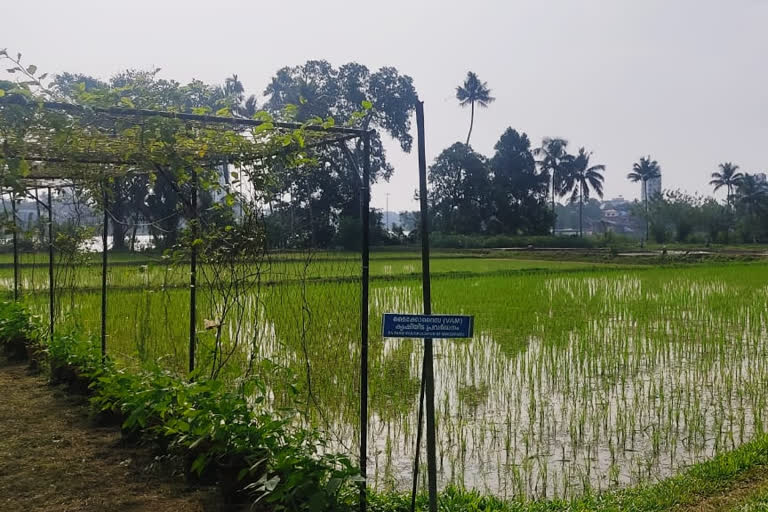Ernakulam: The Kerala State Seed Farm, situated at Aluva in Ernakulam, will be declared the country's first carbon-neutral seed farm. Chief Minister Pinarayi Vijayan will declare the farm as carbon neutral on December 10. The farm, which adopts an integrated farming technique, has managed to keep chemical fertilisers and pesticides out of the premises, and only uses organic manure as well as bio-pesticides.
What is a carbon-neutral farm?
When the carbon dioxide emission from the farm and the reception of carbon gas in the farm become equal, it is called a carbon-neutral farm. Organic farming alone cannot help a farm to achieve this status, hence several scientific methods are used to bring down the emission levels and improve the reception level.
The Kerala State Seed Farm was awarded this status after a two-month-long study by the Kerala Agricultural University. "We have gone a step ahead and have achieved the status of a carbon-negative farm as our emission rates are lesser than the reception rates," Assistant Agriculture Director of the farm Lisymol J Vadakkot told ETV Bharat.
Also read: New analysis finds pandemic didn't dampen deforestation
This farm, initially set up as an agricultural training institute in 1919 by kings with sugar cane farming, was turned into a seed farm when the democratic government was elected to power. This farm has not been using chemical fertilisers and pesticides for the last 10 years. Paddy cultivation for seed purposes is the main activity on this farm. In addition, Kasaragod Dwarf cows, Kuttanadan ducks, hens, Malabari goats, and fish are also farmed here as part of the integrated farming technique.
The paddy seeds produced here ensure a high yield. Native rice varieties like 'Njavara', Rakthashali, Chottadi, Vadakkan Vellari Khaima, Pokkalil, Magic Rice, imported Japan Violet and Kumol Sol from Assam are all farmed here for the production of high-quality seeds. To reduce carbon emissions from the paddy fields duck rice farming method is used. In this method, ducks are reared in the paddy fields to reduce pest attacks and to improve carbon reception.
Also read: Top institutions back approval to genetically modified mustard
Cows are reared to produce organic manure. All organic waste is converted into organic manure. Solar panels installed on the roof of the centre provide most of the electricity that the farm needs. More solar panels would be installed to achieve self-sufficiency in electricity production. Apart from rice varieties, sweet corn, tapioca, millet, chiya, sesame, papaya, tomatoes, capsicum, cabbage, brinjal and yard-long beans are cultivated here. The grass for cows is also grown. This 14 acres farm can be reached only by boat from Aluva palace. This centre, apart from earning an enviable record for its organic production and reduction in carbon emission, can also become a great tourism centre for agriculture enthusiasts.



